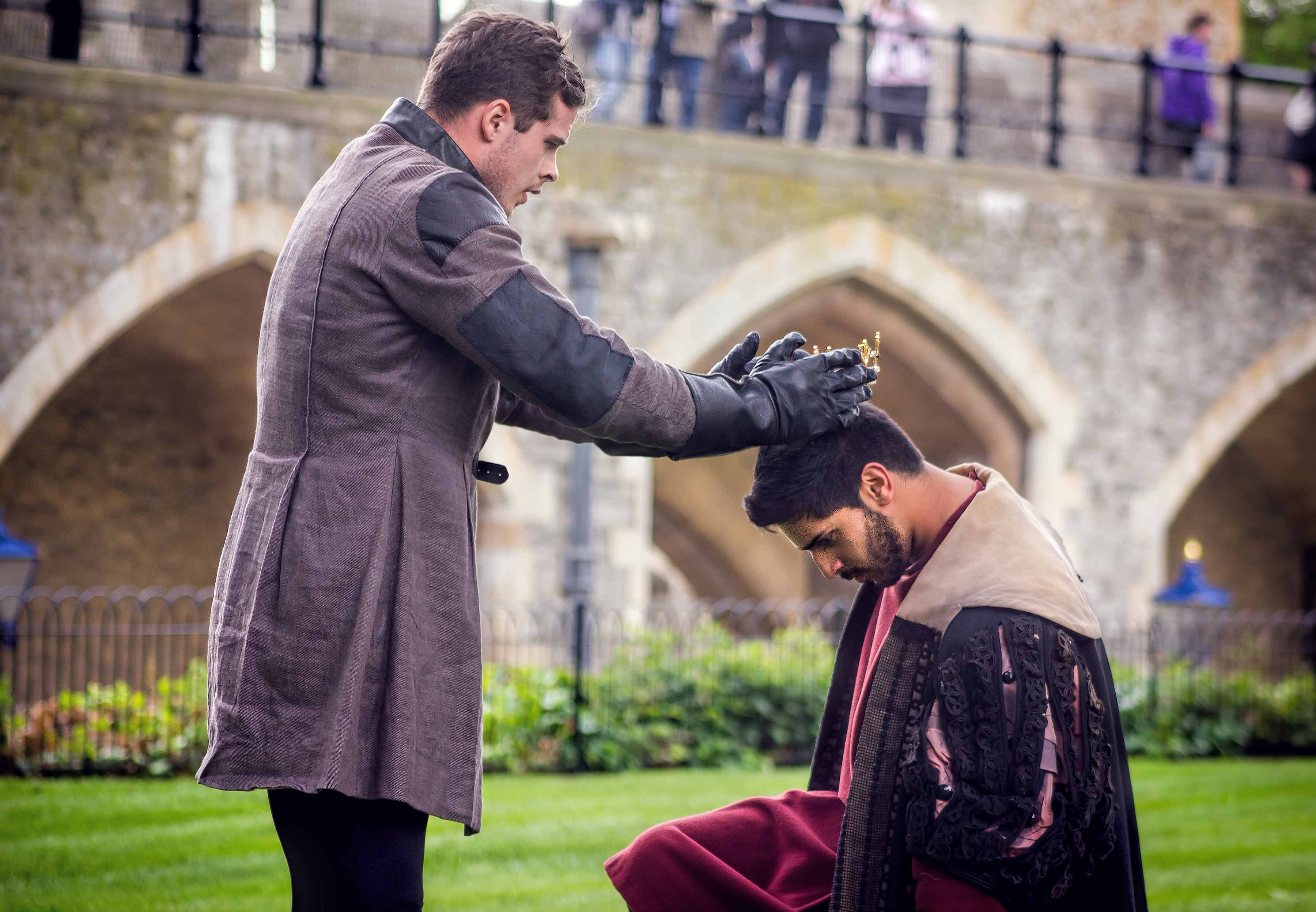- Home |
- Search Results |
- Shakespeare in Love forgot to mention Shakespeare was a sex-charged genius
December 2018 marked 20 years since the world fell in love with William Shakespeare all over again. Joseph Fiennes’ charming portrayal as the winsome Bard in Shakespeare in Love broke hearts and box offices in equal measure. Gwyneth Paltrow, Dame Judi Dench and Geoffrey Rush walked off with acting Oscars, alongside the Best Picture and three other categories. In 1998, Shakespeare in Love proved an enchanting, witty and sweet-hearted megahit.
At the time, it all felt rather plausible; we were swept along by the characters’ ingenious naivety in a film of endearing loveliness. The settings were broadly accurate, namechecking The Rose for Shakespeare purists, the Oscar-winning Elizabethan costumes believably enthralling. Why couldn’t Shakespeare have suffered writers-block scribing Romeo and Juliet? And what hot-blooded young playwright could possibly resist Gwyneth Paltrow’s heavenly Viola? Back then, along with just about everybody else, I really didn’t care that the story was utter codswallop.
In recent years I’ve grown to despise the film, not because it’s lost its emotional sheen over time, but that it’s such an awfully inaccurate portrayal of the William Shakespeare I’ve come to know. But how have I come to know him, you may rightly ask? Certainly not from ‘the historical record,’ for basically nothing remains that gives any insight into the machinations of this great man. I know him from the most personal—and most overlooked—body of work that Shakespeare left us. Whilst he wrote his timeless, epic plays to earn a living, he wrote his personal sonnets to express his loves, jealousies and frustrations. I’ve come to learn that William Shakespeare’s sonnets are the diary of his heart.

After deep interrogation of the sonnets, I feel it’s impossible to conclude that William Shakespeare was anything other than a sex-charged bi-sexual.
In 2016 I set about ‘translating’ Shakespeare’s sonnets into contemporary English, driven in part by my personal inability to understand what he was actually talking about. I found the language intoxicating, the tight metre and rhyme hammering out these beguiling poems, but I knew I was missing the subtleties, the innuendos, and—most importantly—the heartfelt meanings the Bard was expressing. I spent a year interrogating and interpreting this most personal of diaries. Through it, I felt I was getting under the skin of William Shakespeare, sympathising with his situation as societal norms forced him to suppress his true desires. And for that reason, Shakespeare in Love now jars.
The film rightly depicts the young William having an extra-marital affair in London, yet its simplistic boy-meets-unavailable-girl sentimentality fudges the reality of the lascivious mess William Shakespeare got himself in to. He had two lovers, but neither was the white-faced and sweet-smiling Gwyneth Paltrow. One was an aristocratic male, the other a bawdy black lady. After deep interrogation of the sonnets, I feel it’s impossible to conclude that William Shakespeare was anything other than a sex-charged bi-sexual. I’m not alone in drawing this conclusion. Don Paterson OBE, one of Britain’s finest current poets, and, like me, a middle-aged straight guy without an axe to grind, addresses the topic in his jovial critique, Reading Shakespeare’s Sonnets. ‘Of course he was gay,’ Paterson quickly declares. Some may find this assertion outrageous and ridiculous, yet it’s hardly without precedent. A genius creative theatrical luvvie who happens to be gay? Who’d have thought it, eh?

The lion’s share of the sonnets—18 to 126—recount love, rejection and sexual desire for a young, attractive nobleman

‘The Dark Lady’ of sonnets 127 to 152 has also been brushed aside. There was certainly no room in the script of Shakespeare in Love for a promiscuous black lady. It’s been suggested she’s the ‘dark lady’ due to her having black hair, but Shakespeare is far clearer than that. ‘…her breasts are dun…’ he tells us (dun means brown, as in dun cow). Her eyes are ‘raven black’ and ‘if hair be wires, black wires grow on her head.’ She sounds black to me. London was a mighty port, with people from all over the world, so such a relationship was wholly viable. But what a mess he quickly got into: ‘Th’expense of Spirit in a waste of shame is lust in action, and till action, lust is perjured…’ William Shakespeare just couldn’t stop himself.
Throw in the fact he had a shot-gun wedding to a woman eight years his senior after getting her pregnant when he was just 17, and the sentiments expressed throughout the sonnets quickly make sense.
20 years ago, Shakespeare in Love turned a blind eye to these sentiments. My hope is Kenneth Branagh’s portrayal of Shakespeare’s final years in Stratford in the Ben Elton-scripted All Is True might just right the wrongs of Shakespeare in Love. The omens appear good: Ben Elton clearly ‘gets’ Shakespeare, as the acutely-observed gags in Upstart Crow reveal, and casting Sir Ian McKellen as Henry Wriothesley proved a masterstroke.
It’s time the world came to accept who William Shakespeare told us he was. All Is True might just help do that. Fingers crossed.
James Anthony has rewritten Shakespeare's series of poems as sonnets using modern language. Shakespeare's Sonnets, Retold, is available now.